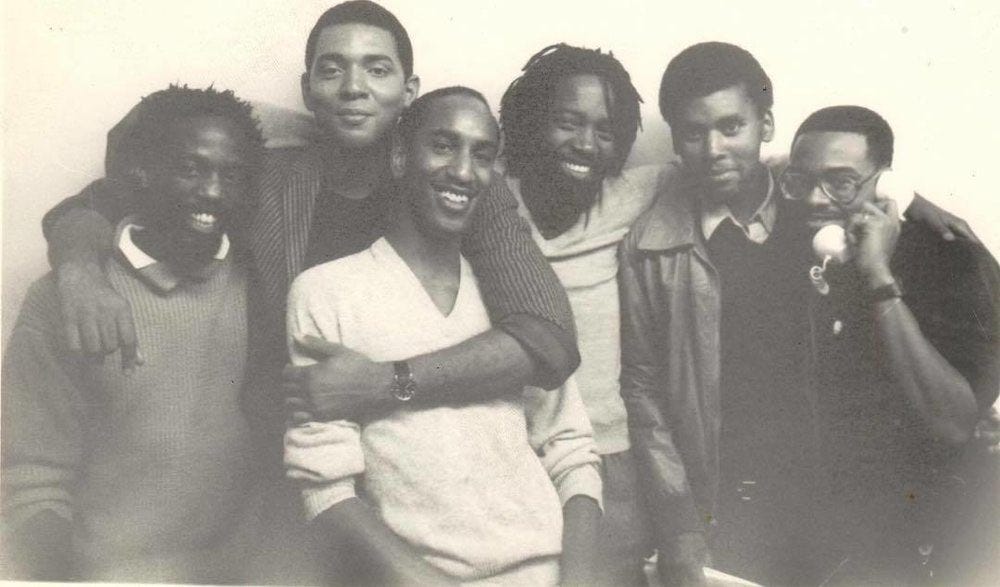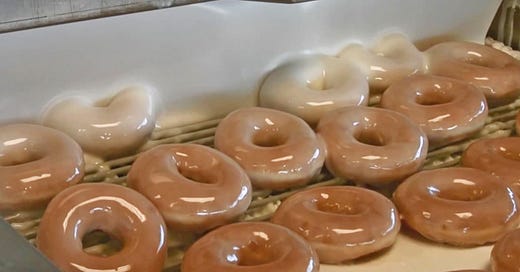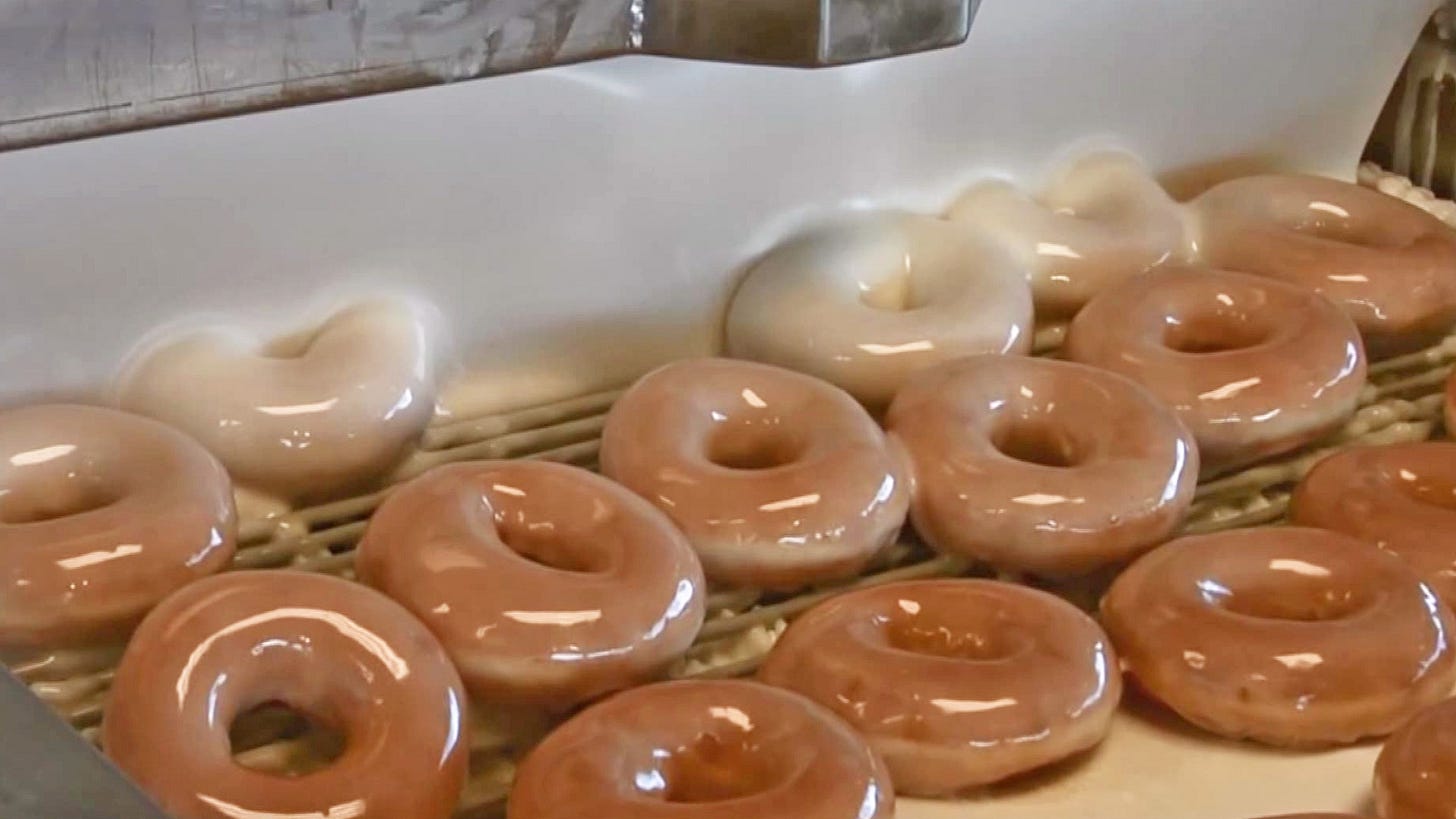What is Glazing?
Why young men are talking about glazing & what it means for Black masculinity
In the outro of MIKE’s song “Da Roc,” he samples a fan reacting to his track “Belly 1.” The fan raves about MIKE’s greatness.
“Shoutout to MIKE, bro,” he declares. “I love MIKE. I’ll forever love MIKE.” Then, the fan adds, “Full glaze. I don’t care if I’m glazing. I’m glazing, bro. I even shed a tear.”
“Glazing” has entered the mainstream English lexicon, especially among young men. At a base level, “glazing” is often used to describe the act of praising someone in a way that is considered to be “over-the-top.”
Without getting too graphic, “glazing” finds itself in the same realm as “bootlicking,” “ass-kissing,” and a few other common phrases. If glazing, you’re perceived as “sucking up” to someone in a way that puts your respect at risk. There’s a sexual connotation—and even homoerotic undertone—to all of this language.
I’ve primarily seen “glazing” used as a joke to make fun of men admiring other men. In Lil Yachty’s case, the Atlanta musician used it to refer to himself while interviewing Bon Iver’s Justin Vernon.
Similar to the MIKE fan, Yachty starts his conversation on Spotify’s Countdown To podcast by explaining how much Vernon means to him. As he breaks down how he sees the singer, calling him “one of the best musicians… creatives… artists… vocalists,” Yachty identifies what he’s doing as glazing and gives himself permission to keep going. “Imma glaze,” Yachty exclaims.
Even if we’re comfortable with showing genuine love to our homies, we recognize that it can be so misunderstood and misinterpreted by other men that we feel a need to name it before they do.
After LeBron James scored 40 points against the Portland Trail Blazers less than two months after turning 40 years old, a reporter asked Los Angeles Lakers Head Coach JJ Redick what he thought about the performance.
Redick, who is among the youngest head coaches in the NBA, tried to find the words. “[James] really just defies… anything that’s normal,” he stated. As Redick continued marveling at James, he acknowledged how fans would react seeing this interview. “The kids will say that I’m glazing,” noted Redick.
I’m fascinated by how this term has made its way out of TikTok comments sections and Twitter replies and into postgame press conferences in front of respected journalists and even on one of the best hip-hop albums of the year so far.
I also grieve the need we feel to explain our love or give it a name. To feel that it might be unacceptable in some circles. And of course, I know that it is. Especially for Black men.
In Punch Me Up to the Gods,
wrote about his upbringing: “Any Black boy who did not signify how manly he was at all times deserved to be punched back up to God to be remade, reshaped.”Over the years, I’ve been told, overtly and indirectly, the worst thing a man can be is gay—or a man who loves other men. That’s because, under patriarchy, the worst thing for masculinity is to resemble femininity. We bend every which way to shield ourselves from looking weak.
“Learning to wear a mask (that word already embedded in the term ‘masculinity’) is the first lesson in patriarchal masculinity that a boy learns,” wrote bell hooks. “He learns that his core feelings cannot be expressed if they do not conform to the acceptable behaviors sexism defines as male.”
hooks continued, “Asked to give up the true self in order to realize the patriarchal ideal, boys learn self-betrayal early and are rewarded for these acts of soul murder.”
In other words, we’re taught to repress love—the ability to love ourselves and others, especially other men. We force it down, letting it shrink beneath our performance of manhood.
As
noted in a letter to two of the Black men in his life, “When you don’t let love breathe, you can’t be surprised when you and those around you suffocate.”“We Black men have suffocated our partners and ourselves for a long, long time,” added Laymon. “We Black men have been suffocating. For a long, long time. And I’d like it to stop.”
I, too, want this pain to end. I want a freedom that lets us openly love other men, understanding that it’s good and necessary even for those of us who are straight. We can clock the hate, knowing it unfortunately still lives in us—and continue with our loving.
This love may require us to go on about our feelings for longer than we’ve been taught or to use language that’s too flowery, too embodied, too true to how we actually feel. But amid the AIDS crisis, Joseph Beam wrote for BLACK/OUT magazine, “Black men loving Black men is the revolutionary act of the 80s.”
And our inability to praise another man without calling it “glazing” tells me it’s still revolutionary, even now.

In other words, this is deeper than Internet slang or us making light of our love for each other. When we praise freely, when we love openly, we choose life.
When I tell
I love him, I dismantle the ever-shifting restrictions of traditional masculinity that are slowly killing me and other men. When me and my homies follow the lead of Kiese and his homies and write love letters to each other, we say, just as Darnell did, “I am a Black man and I am still alive.”Later, Moore added, “Indeed, my living is your living, is your father’s living, is my father’s living, is my mother’s living, is the stranger’s living, and it is the revolution.”
What I love about each instance of “glazing” I named earlier is that they chose to love anyway. Sure, this may be foreign to you. Sure, you may punish me for it. But I can’t help but proudly proclaim my love for this other man. To turn back now wouldn’t be truthful, and I owe myself this truth. I owe myself this freedom.
Forget what you thought. I’m glazing, bro. I’m raising the dead to life with a love that reminds us of our shine, that reminds us how we glow. And I’ll be damned if I tuck this love away, letting it suffocate in the shadows of our shame. This love—our love—deserves to breathe.
Thank you!
I appreciate you reading! If you enjoyed, please share it with someone special.
Was this forwarded to you? Sign up here to receive my next newsletter directly in your inbox.
Support the newsletter: If you’d like to support my work, consider becoming a Paid subscriber to Feels Like Home or buying me a coffee.
Stay connected: For more content and updates, visit my website or follow me on Instagram, Threads, and LinkedIn.





I’m thinking about all the times I still use terms like this. I’m not proud of them, but after reading your essay, I’m realizing, these phrases serve as modifiers, to communicate I don’t feel safe with someone so let me slide this “no homo, or pause” as a way to protect myself. I feel the same way when we also tag, the word “bro” after the word “I love you.” Just parsing through some ideas here. Appreciate you.
Not me thinking this was really going to be about donuts 🤪
Beautiful by the way 💕